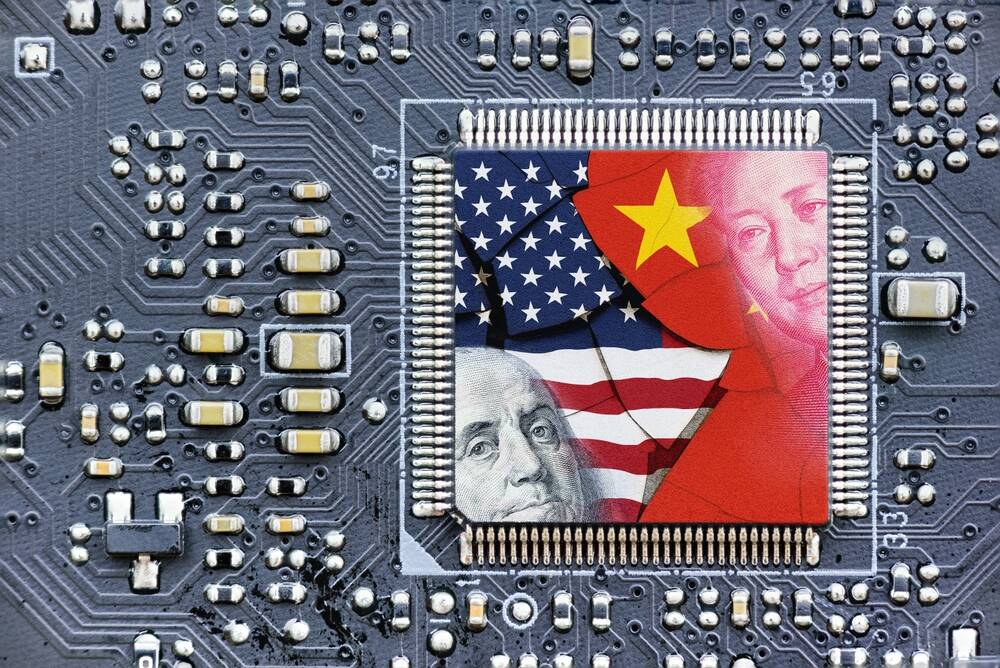US And China Trade Chiefs Aim For Cool Heads As Chip Wars Heat Up

The US and China appear to be trying to calm fraught relations over semiconductors as Chinese vendors reportedly drop orders for Micron memory components in line with Beijing's ban.
On Thursday, US Secretary of Commerce Gina Raimondo met with her Chinese counterpart, Wang Wentao, in Washington to discuss "issues relating to the US-China commercial relationship," during which Raimondo is said to have raised concerns about recent actions taken against American companies operating in China.
This follows the ruling from China's Cyberspace Administration (CAC) less than a week ago claiming US memory chipmaker Micron is a threat to its national security, and instructions that "operators of critical information infrastructure" in China should stop purchasing products containing Micron technology.
Beijing's move has already triggered calls for the US to retaliate, as we reported earlier this week, with the chair of the US House of Representatives' committee on China calling for memory chip maker Changxin Memory Technologies (CXMT) to be added to Washington's entity list, which imposes restrictions on organizations trading with US companies.
According to the Wall Street Journal, the Commerce Department stated that it strongly opposes "restrictions that have no basis in fact" as the CAC has offered no explanation for Micron products failing a security review, adding that Secretary Raimondo would be discussing the recent targeting of other US companies in China.
However, there are fears that any US response in kind could lead to further escalation and deterioration in relations between the two countries.
Beijing seems to have the same view as it was reported that China's foreign ministry and the commerce ministry had described the Micron ban as an individual case and not the start of a campaign against US companies.
A report in the South China Morning Post claims that China-based server makers such as Inspur and Lenovo have already instructed suppliers not to ship them any memory modules containing Micron chips following the CAC ruling.
- Five Eyes and Microsoft accuse China of attacking US infrastructure again
- US mulls retaliation for China blacklisting Micron without evidence of security threat
- China hasn't told Micron why it failed security review, or what its ban means
- China bans Micron products after security review finds unspecified flaws
Such canceled orders highlight the immediate impact the ruling is already having on Micron's business, as Inspur and Lenovo are among the largest customers for Micron memory products, the report said.
Meanwhile, the US and Japan are said to be seeking ever closer collaboration on chip technology as both seek to reduce their dependence to Chinese supply chains.
The two countries are set to issue a joint statement on technology cooperation on today (Friday), according to Reuters, following a meeting with Secretary Raimondo and Japan's Minister of Economy, Trade and Industry.
As well as seeking to build closer ties between research and development hubs in Japan and America, the discussion is expected to extend to quantum technology and artificial intelligence.
Elsewhere in the semiconductor arena, it has been reported that Taiwanese manufacturing giant TSMC wants the German government to cough up as much as 50 percent of the cost of building a proposed fabrication plant in the country.
The contract manufacturer was already said to be in talks with the German government and potential partners including NXP Semiconductor, Bosch, and Infineon over the construction of a new chip factory located in Saxony, with an expected cost of €10 billion ($10.7 billion).
Now, TSMC is negotiating for the German government to cover as much as 50 percent of this cost in subsidies, according to Bloomberg, which cites unnamed sources familiar with the matter.
TSMC is not the only chipmaker playing this game. Intel plans to build its own semiconductor plant at a site in Magdeburg in eastern Germany, and has been seeking additional funding from the government on top of the €6.8 billion ($7.3 billion) already agreed, which was said to cover about 40 percent of the construction. Intel claimed that the building costs had increased due to rising price of construction materials and energy. ®
From Chip War To Cloud War: The Next Frontier In Global Tech Competition
The global chip war, characterized by intense competition among nations and corporations for supremacy in semiconductor ... Read more
The High Stakes Of Tech Regulation: Security Risks And Market Dynamics
The influence of tech giants in the global economy continues to grow, raising crucial questions about how to balance sec... Read more
The Tyranny Of Instagram Interiors: Why It's Time To Break Free From Algorithm-Driven Aesthetics
Instagram has become a dominant force in shaping interior design trends, offering a seemingly endless stream of inspirat... Read more
The Data Crunch In AI: Strategies For Sustainability
Exploring solutions to the imminent exhaustion of internet data for AI training.As the artificial intelligence (AI) indu... Read more
Google Abandons Four-Year Effort To Remove Cookies From Chrome Browser
After four years of dedicated effort, Google has decided to abandon its plan to remove third-party cookies from its Chro... Read more
LinkedIn Embraces AI And Gamification To Drive User Engagement And Revenue
In an effort to tackle slowing revenue growth and enhance user engagement, LinkedIn is turning to artificial intelligenc... Read more

